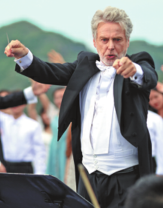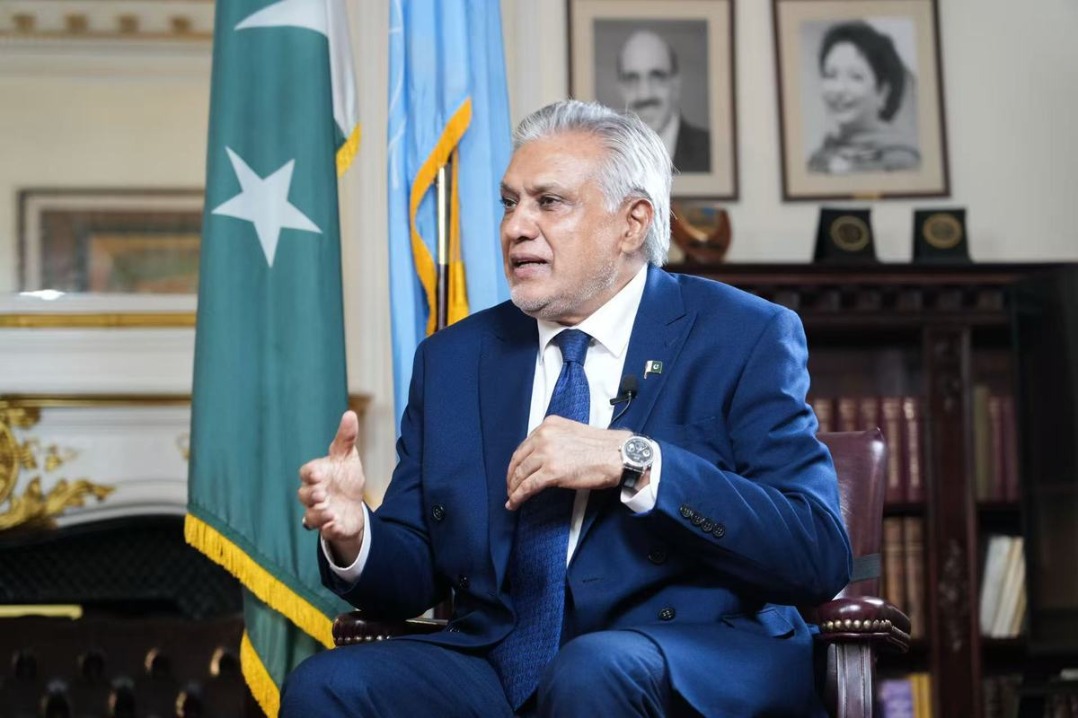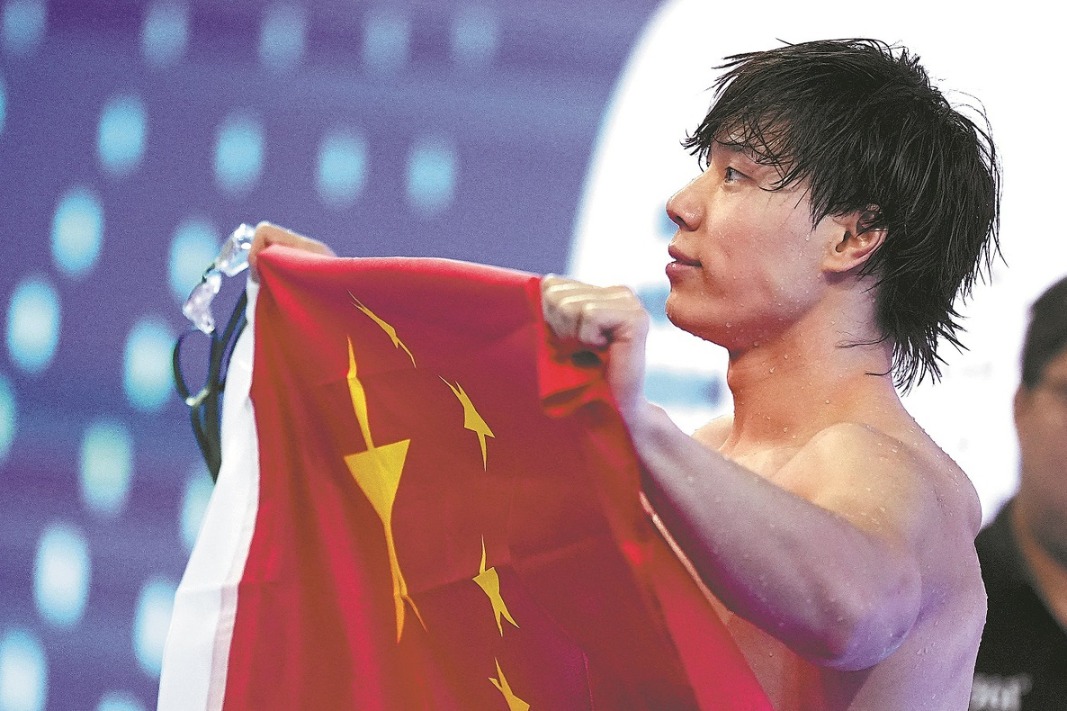Noteworthy exchange of East and West styles

Conductor Michael Summers has always believed in the power of music to transcend borders. But it wasn't until his first trip to China that he truly experienced how transformative cultural exchange between East and West could be.
His journey began in 2015, when a former student — who had studied with him in Europe — invited him to collaborate with a Chinese orchestra in Nanning, the capital of South China's Guangxi Zhuang autonomous region. Excited but unaware of what lay ahead, Summers couldn't have imagined this would mark the beginning of a deep, ongoing relationship with China's rich musical heritage.
Since that first visit, he has returned to China four times, performing concerts and conducting masterclasses in cities across the country. But one of the most extraordinary chapters in his Chinese experience unfolded in the breathtakingly remote region of Guangxi.
There, Summers was invited to participate in a televised production by working with Guangxi Radio and Television held at the Dashiwei Sinkhole National Geopark in Leye county, Guangxi.
The performance took place on a glass platform suspended above the vast sinkhole — an awe-inspiring natural amphitheater surrounded by misty cliffs and ancient forests. As spectacular as it was challenging, the setting pushed Summers and his fellow musicians into new creative territory.
Working closely with Chinese performers, Summers helped create a unique musical fusion: blending the iconic Italian aria Time to Say Goodbye with the beloved Chinese folk song Jasmine Flower. The goal was to merge the emotional power of Western opera with the delicate beauty of Chinese melody.
"It was magic," Summers recalls. "As we rehearsed, we realized how naturally the two songs complemented each other. There was a shared emotional resonance that transcended language and style."
Summers describes the entire experience as "something out of a dream". Despite having conducted in some of the world's most renowned venues, he says this performance stands out as one of the most memorable.
The orchestra that joined him in Guangxi was composed of young, exceptionally talented Chinese musicians. What struck him most was their connection to both the music and the land.
"I remember watching how they responded to the environment," he says. "They weren't just playing notes — they were expressing something deeply rooted in their culture. It was beautiful to witness."
Reflecting on his time in China, Summers is still moved by the passion and commitment he saw in the next generation of musicians. "I came with certain expectations," he admits, "but I found an entire generation eager to learn, to engage, and to contribute to the global classical tradition."
Inspired by these experiences, Summers is now pursuing a vision that could further bridge East and West: the creation of the Venice Philharmonic Academy. This international institution, based in Venice, aims to bring together young musicians from around the world — especially China — to study classical music within the rich cultural context of Europe.
"I want to create an environment where students not only improve their technical skills but also understand the 'why' behind the music," he says. "Context is essential for any performer."
The academy will be grounded in the same spirit of cultural exchange that Summers encountered in China. By gathering students from diverse backgrounds, the academy will foster an environment where musical traditions are explored, celebrated, and reimagined.
Born in Stockholm and raised in Cape Town, Summers studied conducting at the University of Cape Town, King's College London, and the Milan Conservatory.
He reflects with gratitude on the teachers who shaped him across continents. "My own journey underlines a basic truth: music is the world's international language — the most powerful and beautiful means of promoting peace and understanding," he says.
Appointed in 2007 as head of the faculty of orchestral conducting at the Venice Conservatory, Summers has since dedicated himself to nurturing the next generation of musicians. With the launch of the Venice Philharmonic Academy, he hopes to inspire students from all cultures — not only to master the music they play but to understand the cultural stories it tells.
Now retired, he is devoted to building the academy and passing on everything he has learned from his teachers and his international career.
He is particularly eager to welcome young musicians from China. "What I found most striking," he says, "was how deeply Chinese musicians feel connected to both their cultural heritage and the wider global music community. For them, there's no contradiction — it's all part of the same journey."
Summers firmly believes that China's growing influence in classical music is already reshaping the global landscape. "China's contribution is undeniable," he says. "And in the years to come, I believe China will lead the way in transforming classical music for a new generation."


Today's Top News
- Thai army confirms ceasefire across all Thai-Cambodia border areas
- Nation's AI industry hailed as economic growth driver
- China launches national child subsidy program
- Xi urges all-out flood relief efforts
- UK asylum hotel protests spread to multiple cities
- Derailed German train 'probably hit landslide'






























